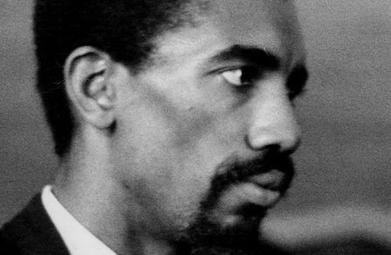henry dumas prize for fiction
“He inhabited the geography of the country in a way I think very few people do. That is to say, his familiarity and his ability to translate an uptown Harlem experience as well as the Mississippi River…. He was everywhere.”
— Toni Morrison, on Henry DumasAbout the prize
In honor of Henry Dumas’ legacy, we seek to award innovative fiction that “inhabits the geography” of its place in rare ways. Any fiction writer working in English is eligible to submit, so long as they have not yet published a first book. U.S. citizenship is not a restriction of eligibility. The winner receives $1000 and publication in the Arkansas International. The inaugural judge of the Henry Dumas Fiction Prize was Ladee Hubbard.
Please follow our social media channels for announcements and visit Submittable for details. We are grateful to Eugene B. Redmond and the Henry L. Dumas Foundation for their support of our work.
About Henry Dumas
Henry Dumas (1934 - 1968) was the author of groundbreaking fiction and poetry that helped invent Afro-futurism and expanded the U.S. contributions to Black rural and Black transnational literature. Dumas was born in Sweet Home, Arkansas and moved to Harlem with his family when he was ten years old. A member of the Air Force, he served in San Antonio, Texas and the Arabian Peninsula, then supported the Civil Rights Movement as a civilian by transporting food and clothing to Tennessee and Mississippi. Dumas was a treasured husband and father, and for several years he served as an influential mentor at the University of Southern Illinois. On the night of May 23, 1968, he was shot and killed by a New York Transit police officer. He was just 34 years old. In his writing Dumas explored political issues in an array of modes, and he was inspired by diverse forms like jazz, gospel, blues, folklore, superstition, and the natural world. Although Dumas published individual work in magazines like the Negro Digest, Trace, and Umbra, he did not publish a book during his lifetime. His posthumously published books, and the subsequent survival of his legacy, is largely due to the life work of his friend and literary executor, Eugene B. Redmond. Dumas is now recognized as an essential member of the Black Arts Movement and a daring presence in U.S. literature. Learn more.




